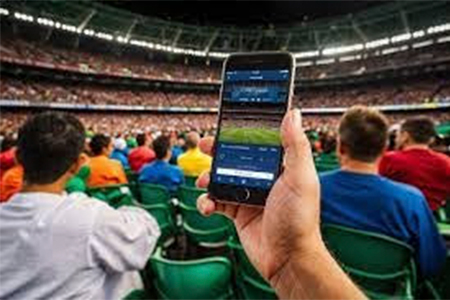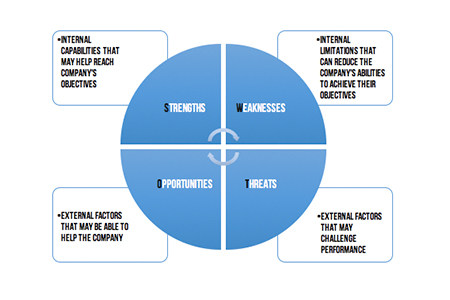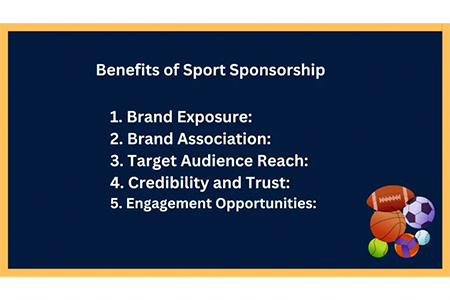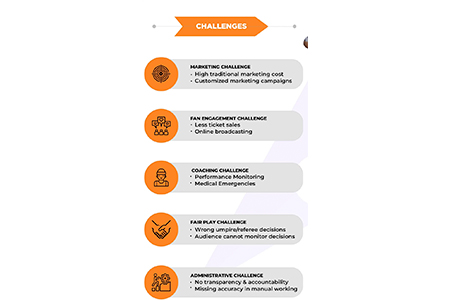Leveraging the Power of Sports Marketing: Strategies for Brand Success

What is Sports Marketing?
Sports marketing is the intentional leveraging of sports platforms as a tool to promote products, brands, or services to a passionate and engaged fan base. It leverages the vast power of sport culture to deliver intense emotional relationships between customers and firms. From sponsorship to endorsement to interactive experiences at events, sports marketing offers a compelling vehicle for establishing brand preference. As consumers increasingly identify themselves with brands that align with their favorite team or players, this means of marketing is one of exposure and validation. From international tournaments to national league play, the possibilities are limitless. Sports marketing itself is storytelling, identifying a brand with wins, determination, and moments of teamwork that resonate so much with consumers.

Key Sports Marketing Strategies for Brand Success
Valuable Brand Partnerships
The creation of effective brand alliances in the sporting business can open giant doors to business. These partnerships are not merely sponsorships as such, but formulate common objectives and co-development. In the case where a brand is associated with a sporting organization that embodies its values and targets, the credibility and relevance is increased. The appropriate alliance can result in co-branded campaigns, company merchandising, or exceptional fan experience that triggers increased involvement. Strategic partnerships allow brands to access fan bases and convert viewers into customers and customers into advocates. Valuable partnerships can be distinguished in the competitive world of sports marketing through providing authenticity and brand success in the long term.
Consider a Sports Branding Agency
Sports marketing is a challenging process that needs experience and that is where an experienced sports branding company is very useful. These agencies are the ones that focus on matching your brand to the appropriate teams, athletes and platforms in order to maximize your visibility and returns. Knowing the behavior of the fans, market trends and strategic partnerships, they develop campaigns that are more than exposure, they create actual relationships. Whether it is negotiating sponsorship arrangements or any other athlete partnership, a sports branding agency makes sure that your brand communication is coherent and effective. Their experience in the industry can make your marketing process a success strategy regardless of whether you are launching a new product or redefining yourself.
Digital Engagement and Social Media Dominance
In the modern digital and hectic world, the success of a sports brand depends on its ability to control the social media and inspire significant digital interaction. Instagram, X (previously Twitter), and TikTok enable brands to engage fans in real time and turn passive fans into active participants. The power of sports marketing uses viral content, behind-the-scenes, and stories told by an athlete to maintain engagement. It is not merely the question of visibility, it is the question of the establishment of an emotional connection. With the help of analytics and trending formats, brands can narrow down their content strategy and remain top-of-mind in a very competitive space. The digital dominance is not a choice but a necessary brand relevance.
Always Target a Specific Audience
In sports marketing, it is easy to be appealing to none when you strive to appeal to everybody. This is why it is essential to reach a particular audience in order to be successful in the campaign. It could be hardcore followers, casual audiences, the young segments, or any other audience, by knowing the behavior of the audience, brands will be able to adjust their message, tone, and delivery channels accordingly. Such a narrow-minded approach is more relevant and makes more interaction. Brands enhancing trust and loyalty do so by adhering to the values, interests, and lifestyles of their audience. Accurate targeting does not only increase ROI but also makes each campaign personal, timely and contrived. With so many people in the market, it is all about reaching out to the correct audience.
Carefully Distribute Content Channels
The content king is the queen in sports marketing, but it must be spread via the correct channels. The placement and manner of displaying the content matter are crucial in order to achieve the most gain. Social media and email campaigns, YouTube highlights and live-streaming platforms are all channels with different purposes and target audiences. Strong distribution will help get your message to the fans at a time and place when they are most active. The strategy also enables a uniform branding of the product in different areas enhancing the wisdom and appreciation. The customization of the types of content in each channel, such as short videos on Instagram and in-depth stories on blogs, creates a unified and successful presence that can be translated into quantitative changes.

Benefits of Sports Marketing
Increased Brand Visibility and Awareness
The ability of sports marketing to boost brand visibility among a large number of people is one of the greatest assets of sports marketing. Brands can reach large audiences through association with popular teams, athletes, or sporting events, thereby accessing huge, free, and dedicated audiences. Such relationships bring brand awareness to a new level on par with the conventional marketing activities. It could be a logo on a jersey, a commercial in the middle of a match, or a viral post on social media, but the visibility in the sports world can be easily translated into the top-of-mind-recall effect. Regular exposure due to sports in a competitive marketplaceis what can make one a forgotten object or a household name. It is an awareness of its brand with passion in its heart.
Enhanced Customer Engagement and Loyalty
Fans are emotionally attached to sports-related brands, brands that leverage this emotion can result in intense customer engagement and loyalty. Sports marketing will enable companies to engage their audience in a real way, through interactive campaigns, exclusive content, and immersive experiences. These touchpoints leave long-lasting impressions, whether it is behind-the-scenes with a favorite team or access to exclusive merchandise. When a brand participates in the passion of its loyal fans, they will likely end up being loyal customers. Through their association with the sports moments that matter, the brands will develop real relationships that result in repeat business, word-of-mouth marketing and retention of the customer relationship in the long term.
Access to Targeted and Diverse Audiences
Sports marketing also provides a peerless chance to target the specific and varied audiences in terms of age, gender, geography and interests. Whether it is in the youth level up to professional championships, each tier of sports has its own fan base that is willing to participate. Through association with the appropriate teams or events, brands have the ability to differentiate messages to fit in certain sections of the population, as well as expand the appeal of the brand. The effectiveness of sports marketing can be used to reach out to many segments, whether that market is local or global. Such access to various audiences allows the brands to spread their presence and retain their personal and relevant communication strategy.
Positive Brand Association and Credibility
You can make a great deal of your credibility when you identify your brand with well-known sportsmen or superstar teams. Sports marketing has operated on the tenet of association, in which fans who place trust in their team or idol tend to trust products that they promote. This favorable brand perception can raise the consumer perception and support brand values such as teamwork, excellence, and resilience. Additionally, association with high stakes sporting events gives it some degree of prestige and gravity, which the conventional advertising might not provide. Sports marketing, when done in a smart way, can not only be more visible but the brand equity, which is based on authenticity and trust, has been developed over time.

Challenges of Sports Marketing
High Costs of Sponsorship and Advertising
Sports marketing may provide huge returns but it may be hampered by the cost involved, as the amounts of money needed to fulfill the contract, such as star sponsorships, are high. Prime placements, sponsorship of events and athlete endorsements are usually very expensive. These expenses can be more than the benefits for smaller brands without a strategic plan in place. Nevertheless, the expenses can be justified in case the campaigns are focused and combined across platforms. When advising on maximizing ROI, it is necessary to define how much money should be invested and concentrate on those opportunities that better fit your brand values and audience. These high entry points require the budget-conscious brands to be particularly inventive in their approach to hitting them without losing impact.
Measuring Return on Investment (ROI)
Measuring success in sports marketing may be quite difficult, particularly when one has to work with such abstract measures as brand recognition or emotional attachment. As opposed to direct-response advertising, the ROI in sports campaigns is not as simple because the majority of them are aimed at long-term brand development. Nonetheless, using the appropriate KPIs, including the engagement rates, mentions in social media, and the traffic to the website, brands will be able to monitor performance. The use of such tools as CRM systems, analytics platforms, and fan feedback surveys is also beneficial in terms of determining real impact. The strategic approach to measuring ROI would help to make sure that the marketing activities are data-driven, purposive, and business-oriented.
Managing Brand Reputation Risks
Being linked with an athlete or a team is always associated with reputational risk. The affiliated brands can easily reflect on the scandals, performance declines, or controversies. In sports marketing, a partner fails in one move and months of good branding are lost. The possible solution to this is that brands should carry out due diligence when entering a partnership and lay down clear guidelines in contracts. In case of any problem, there should also be crisis communication plans to address the problem promptly. Active reputation management is the way to make sure that your brand will not lose its integrity even in unexpected circumstances. Finally, prudent choices and close monitoring will result in a reduced risk and safeguard your brand image.
Intense Competition for Audience Attention
Whereas in the marketing of products, competitors are only competing with similar brands in the market, in sports marketing you actually compete in terms of attention in an already laden environment. The fans receive more than enough advertisements, sponsored content, and branded content every day. To go through this noise, one needs more than visibility, he/she needs creativity, authenticity, and timing. The content that should be developed by a brand should be one that not only appeals to the emotions but also has a visual and contextual appeal. By capitalizing on real-time, trending, and fan engagement, it is possible to pick up momentum. The game in question is also a high-stakes game and it only takes a person who has a keen strategy and good action involved to capture the audience attention.

Frequently Asked Questions (FAQs)
Athletes or teams whose values, fan base, and image match well with the target audience and brand identity should be sought by a brand.
Smaller brands can make it with local team sponsorships, grassroots events or micro-influencers that have a niche in sports.
Targeting will also be used to provide personalized messages that will be impactful so that there is a high engagement, improved ROI, and enhanced emotional resonance with the appropriate fans.
Footage of what happens behind the scenes, athlete takeovers, fan challenges and live coverage, which is released on the social platforms has been known to do quite well with sports-related audiences.


